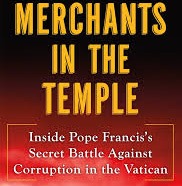
There is one extraordinarily important vowel in my forename: the letter “U”. For the whole of her life on earth, my mother insisted that “Laurie” and “Lawrie”, from Laurence and Lawrence, were not merely alternative spellings but marked a profound doctrinal distinction.
For whereas Laurence was as truly Catholic as the Virgin Mary and the Pope, Lawrence was fundamentally Protestant. There were no two ways about it. Laurence, as all good Papists knew, was named after Saint Laurence, who was martyred in the persecution of the Christians that was ordered by the Roman emperor Valerian in 258. The name meant “covered in laurels”. Lawrence was therefore an heretical aberration. After all, who ever heard of anyone being “crowned with lawrels”?
Neither did my mother hold any truck with the alternative versions of Saint Laurence’s martyrdom. She knew with all the certainty of a true Catholic that he was slowly roasted to death on a gridiron and proved his bravery by somewhat colloquially announcing, after suffering pain for a long time, “Turn me over. I’m well done on this side.” I can only be glad that mother died before she could hear the claim by historian Patrick Healy that the whole legend was based on a spelling mistake in which passus est (he suffered) was made to read assus est (he was roasted).
But this childhood knowledge regarding my name hardly exhausted my interest in saints. As a nine-year-old at the Sacred Heart boarding school in Droitwich, I was constantly enjoined by the resident priests to pray for the canonisation of the founder of the Sacred Heart order, Michael Garicoits, a 19th-century French Basque priest whose claim to sainthood was at least partly based on the news that on several occasions he had been seen rising from the ground at the consecration part of the mass.
This was not quite enough. Two other attested miracles were needed before canonisation could ensue. Thankfully, our juvenile prayers were answered and the necessary miracles turned up: simple Michael became Saint Michael.
My schoolboy pride in having played a small part in the eventual canonisation of Michael Garicoits was only marginally tempered by Francis Dilworth, a somewhat dilapidated fifth-former at my Christian Brothers secondary school. During milk break one morning he told me about a famous philosopher called Hume who had come up with not one but five reasons for not believing in miracles of any sort. Best of all, according to Francis, was the one that employed a dramatic device known as Occam’s Razor. This asserted that the simplest explanation for any puzzling phenomenon was usually the correct one. What this meant, whispered Francis across the line of desks, was that for a miracle to be true, denial of a miracle would have to be more miraculous than its acceptance.
Suppose, he said, we look at the miracle of the Resurrection, at the story that Jesus not only came back from the dead, but then put in several personal appearances to his still living apostles. Now, applying Occam’s Razor, what is more likely? That those making the claim are mistaken, or that Jesus actually came back to life?
It would be too glib to claim that Francis’s cynicism destroyed my childhood fascination with the miraculous, with the proliferation of loaves and fishes, the liquefaction of martyrs’ blood or the raising of Lazarus. Something far more trivial, far more blunt than a razor, finally curbed that obsession.
It was nothing more than the story of a man who had been confined to a wheelchair after a shocking road accident and was endeavouring to obtain a large sum in insurance from a well-known company. The insurance agent in question was so sceptical that he instituted court proceedings to establish the man’s credibility. After the judge found for the man, the agent was still surprisingly jubilant. “From now on,” he told the claimant, “I will follow you to the ends of the earth to ensure that you are forever confined to that wheelchair. So, tell me, where are you off to now?”
The reply was chillingly succinct. “Lourdes,” said the claimant.

